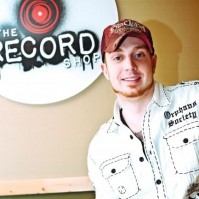
Sean Giovanni
La Vergne, TN
Hear from Sean Giovanni's Students
Notable Clients of Sean Giovanni
-
Dr. John
-
Tracey Lawrence
-
DJ Sinister
-
Randy Houser
-
Meatloaf
-
Tim McGraw
-
John Legend
-
LIl Jon
-
Brett Michaels
-
Magic Mike
-
MTV
-
Sony Music
-
Universal Music Group
-
Warner Bros
AMPLIFY YOUR LIFE
WITH AUDIO
ENGINEERING AND
MUSIC PRODUCTION
IN-PERSON MENTORSHIP
Are you our next Success Story?
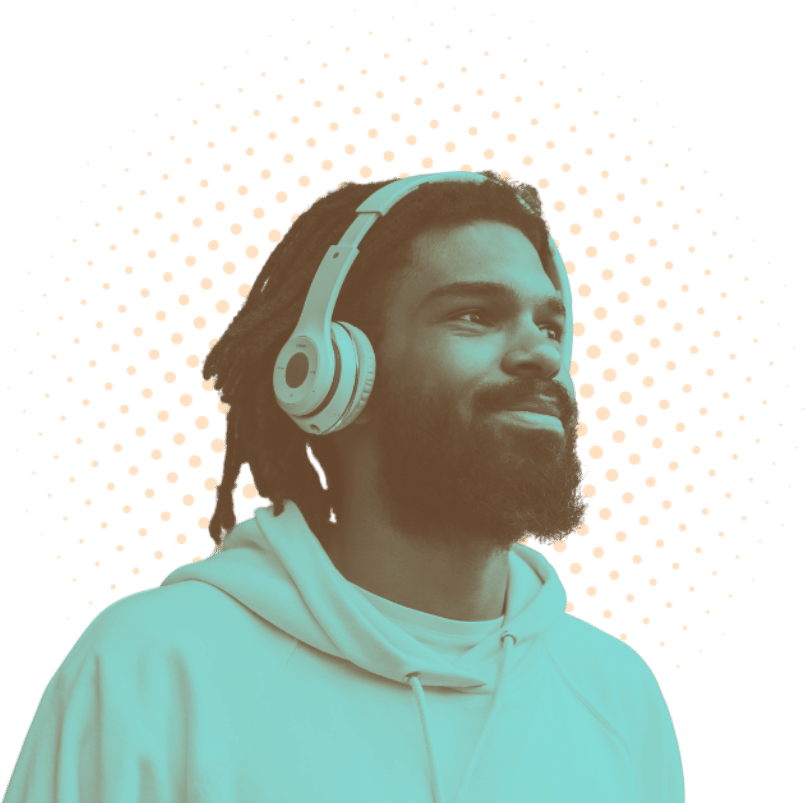
"*" indicates required fields
Notable Apprentices:
Meet Your Music Pro, Sean Giovanni
Q. An Open Door
Sean Giovanni is a sonic storyteller and the owner of The Record Shop recording studio, in Nashville, Tennessee.
When did you first fall in love with music?
I was seven years old and my elementary school had an art contest. They had a variety of categories you could choose from, but the topic of the art had to be, ‘Don’t Do Drugs.’ I chose music. I had a little My First Sony Tape Recorder and an MC Hammer boombox. I figured out a way to play that and put it next to this microphone and rap into it at the same time. I ended up winning first place. The school had this assembly, and everyone in the school came and they called out the winners.
I had no idea that I had won. I’m sitting there and my name gets called, and I come down and pick up this award. At that time, I was a little bit taller than everybody and I had big red curly hair. I wasn’t necessarily like the cool kid or popular. But after that assembly, I remember walking down the hallway and the kids that I had been trying to get along with were walking right next to me lockstep. I saw that music could impact people. It could show people a different side of you. I can visualize walking down that hallway, it was that impactful to me. From that moment on, music was one of the most important things in my life.
When did you start pursuing it with more dedication?
I was in eighth grade and MTV, back then, had MTV Spring Break. It was a show where they would go down to Cancun and there’d be these DJs playing on these big stages with everybody partying, going crazy. I saw this guy named DJ Skribble, he was scratching records and DJing for this big party, like an outdoor club party on the beach. I just thought, ‘Man, that looks awesome.’ That summer, I saved up some money cutting lawns around the neighborhood and I bought a couple turntables, a mixer, a handful of records, and a book that was a course from Berklee College of Music called The Art of Turntablism.
I studied that, that whole spring break, and then through the summer. I saved up a little bit more money. I bought a four track cassette recorder and started recording. It was game over, that’s what I was gonna do. I had friends that had started bands and some friends that were writing songs, and really great singers or rappers. I would make some tracks or I would bring in my friend that plays guitar and sings and I set up this little makeshift studio in my parents basement. I would spend all my time, if I wasn’t in school or playing sports, in that basement recording.
How did your parents react to your drive towards a career in music?
When I was getting ready to graduate high school, my parents were pretty strongly adamant about me going to college. Like most parents, they saw the traditional path of a career and they expected their children to go to college, get a degree, find their industry, and work their way up. Music and art in general is often looked at in our society as a hobby. If you don’t come from a family that has a musical career background or an industry background, it’s pretty challenging for them to recognize that this is a business, it’s not just a hobby. It’s a career. And it’s a legitimate career. That was something that it took a little bit of time for my parents to recognize. It was very foreign to my parents initially; this idea that their kid wanted to go into music. It didn’t seem like a real job.
Over time, fortunately, my parents started to understand the passion that I had for it. I went and did the research, and I figured out how to show this is a career, like, ‘Here are the different jobs that you could have.’ I became really enthralled by the idea of having a career working in a studio, being on the other side of the glass, and helping artists bring their songs to life. I found that there were jobs as a recording engineer, a mixing engineer, and there were producers that put the whole thing together. I read all kinds of books and did a bunch of research.
I said, ‘Hey, look, this is a real job. This is a career, there’s an industry here and a business around it. These are the occupations that you can have. I found a few schools that can teach you how to do this. Now, I’m not going to have a college degree. But, I am going to go through a program that’s going to teach me a trade. There’s a possibility that I can turn that into a career.’ And that was enough to get my parents on that side and to understand. My parents wanted me to be happy.
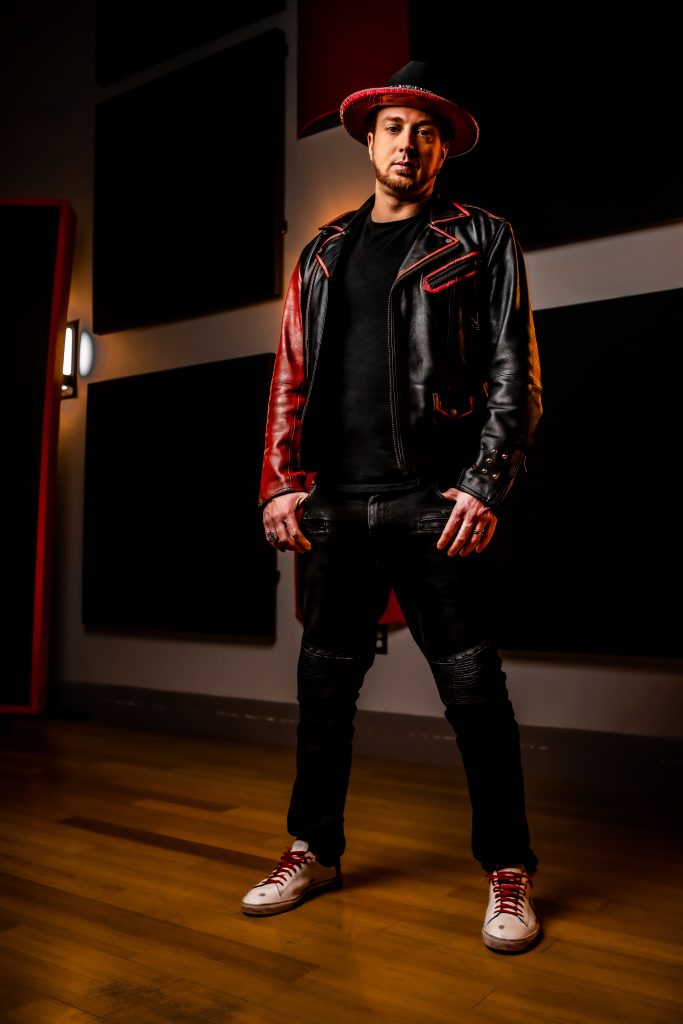
Tell us about the program you entered.
I ended up finding an audio production trade school that I thought [would be] really great to go to. They had a number of different studios, they toured me through, and gave me the idea that if I got their certificate, that I was going to be able to go to a studio and interview and get a job as an assistant and climb the ladder and work my way up. I was super excited. The good thing about the school, like most schools that I’ve experienced, is that they did teach the technical aspects of things. I had access to equipment and I learned the basics of how to operate the equipment. The challenging thing was not getting a lot of hands-on experience in the process. Fortunately, the school that I went to had access to the studios outside of class. If I didn’t have that access to hands-on experience outside of a classroom setting, there’s no way that I would have been prepared to be able to get into an industry like Nashville, and be able to compete in any way whatsoever.
Yeah, Nashville is notoriously competitive. What obstacles were you up against when you started out?
One of the challenges that I had when I moved here is that I was really excited and really advantageous. I was always pushing how I was willing to do anything [and begging for] a shot. It showed a little bit of desperation, but also it didn’t show anything unique. I thought that I was special because I found this passion really young, I worked really hard, I excelled, I went through this program at the top of my class, and I did all the things that I was taught growing up in a blue collar town: ‘Work hard and prove yourself.’ But when I entered the industry, I found out that there were countless other people that were doing exactly the same thing. And that they were equally qualified, if not more qualified, and equally talented, if not more talented. [I had to find] what was unique about me. [I had to find] the things that I could provide at a higher level than what the average could. Once I recognized that, that was when opportunities started to happen.
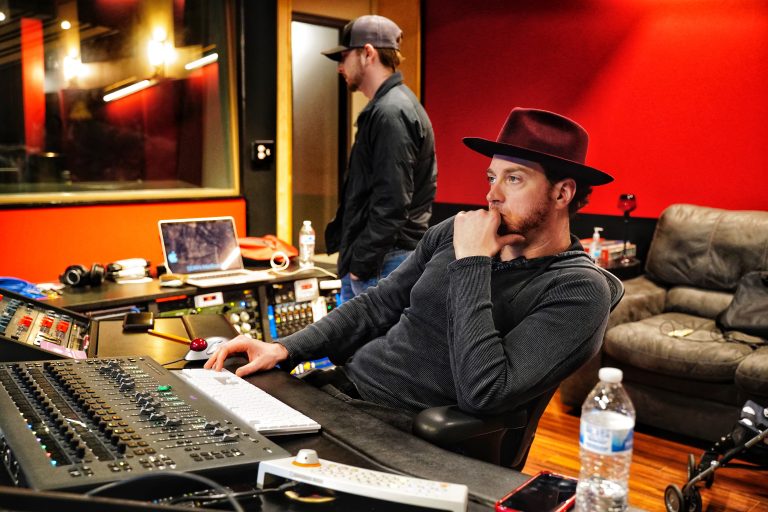
What did those opportunities look like?
My first big opportunity in the industry came from following the concept of saying, ‘Yes.’ I have a friend named Peter Keyes, who’s an incredible keyboard player, producer, and songwriter. We had just met recently, we had been working together for a little while. He had this songwriter that he was collaborating with named Sinister. Sinister had been in a bunch of heavy metal bands back in the day, had just moved to Nashville, got a publishing deal with an artist, and was doing some really cool stuff. Peter hit me up because he thought the vibes would connect well, and said, ‘Hey, would you be interested in doing some demos for this artist.’
There wasn’t any budget for it. At that time, I was pretty busy in the studio. I had sessions every day, things were going pretty well. I had moved into a larger studio that I was leasing out and working out of and I didn’t necessarily need to work for free to gain an opportunity. But because I trusted Peter, I didn’t think twice about it. I said, ‘Yeah, let’s do it! It doesn’t matter if I’m getting paid up front for the hours that I’m spending time working on these demos. I see that there’s an opportunity to collaborate with people that I think are cool, for music that I like. I’m going to enjoy it.’ We ended up doing a couple of tracks and we were working together for a while. Those songs were great.
Eventually, the manager of Sinister, Charlie Panache, heard some of the demos that we were doing. One of his partners, a songwriter named John Rich, was opening up a private studio to work on his own projects and some of the stuff that he was producing. They needed somebody to engineer. So, Charlie asked me one day if I could come over to the studio and engineer a session for John. It was for a record called Reggae has Gone Country, where they brought in a bunch of superstar reggae artists to do cover songs of classic country music. I walked in, a little nervous, but very excited to finally have this big opportunity. Fortunately, the session went really well. John, and I hit it off. Then after the session, Charlie asked me to be the staff engineer at the studio.
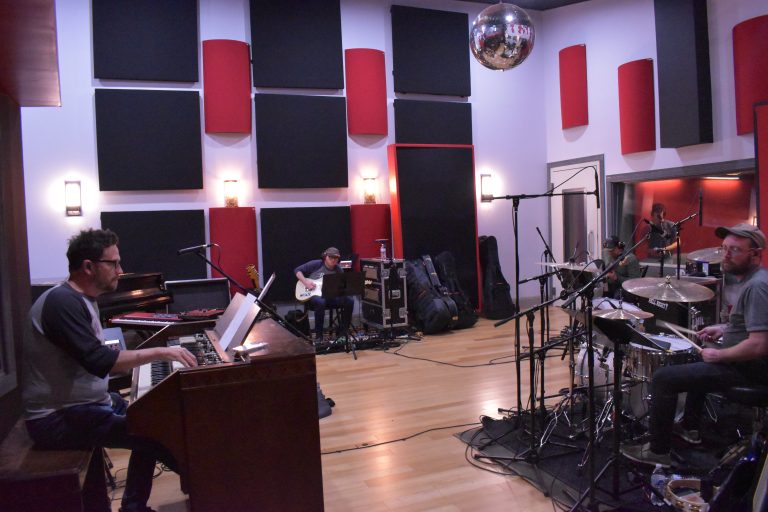
Did your parents fully change their tune after your career began to grow?
A couple years after I moved to Nashville, I came home to visit my family in Detroit for Christmas. My whole family pitched in, and they bought me a sign that sits in my studio to this day. It had the name of ‘The Record Shop’ on it. On the back of it, there was a letter that said, ‘We are proud of you.’ I broke down crying, because I hadn’t had anyone tell me that. I was going down this path on my own, trying to figure it out and I didn’t even realize how lonely I was until someone said, ‘We are proud of you.’ I felt like, ‘I’ve done something,’ even though I didn’t feel like I had accomplished anything, because I was nowhere near the goals that I was looking to accomplish. But the people around me were proud of the progress that I was making. That gave me hope to continue down this path.
What advice do you have for people just starting out in the music industry?
When you get to the top of a mountain you just hit the bottom of another one. You have to enjoy the journey instead of the destination. [You see these] memes on social media, and they’re cliche, but there’s so much truth in the idea that you’re only successful in the moment of success. As soon as that moment passes, you’re just going after the next moment. I think the only way to stay sane, which is an incredibly challenging feat to accomplish in this industry, is to focus on the fulfillment of the process of doing what you love every day.
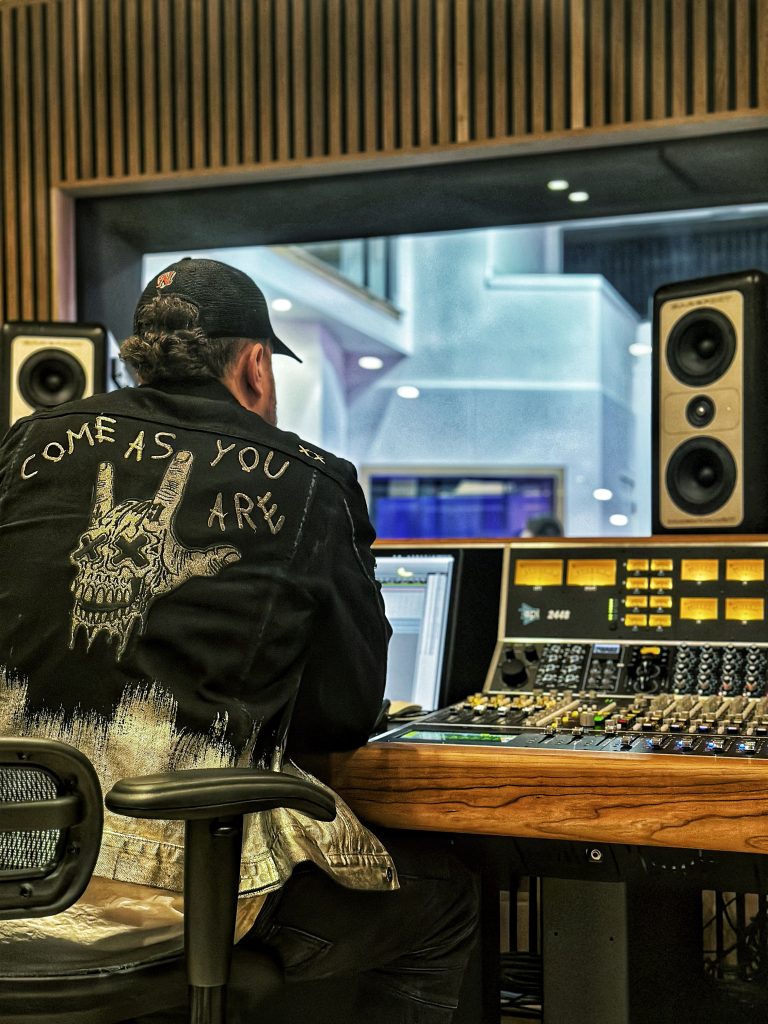
What do you think makes you stand out, particularly, as a mentor?
My door’s always open to chat. When I got started in the industry, it was really challenging for me to find someone that was willing to just sit down and give some advice and show me some direction. I wish that I would have had a specific mentor that could have really guided me through the process. I feel grateful for the success that I’ve been able to have and hopeful for the future of my career. But I [mentor] because I want to be able to give support to those people that may not know where to find it. If there’s a question that you have, or there’s a challenge that you have, or something that you’re trying to accomplish in your career, and you’re not sure where to turn, [I’m here]. If I can, in any way, give you some kind of two cents or idea about how to make it happen [I’m here]. Feel free to just give me a shout, I’d be more than happy to do whatever I can to help you.
Q. Recording mentor Sean Giovanni on Reaching Goals & Building a Purpose-Driven Career
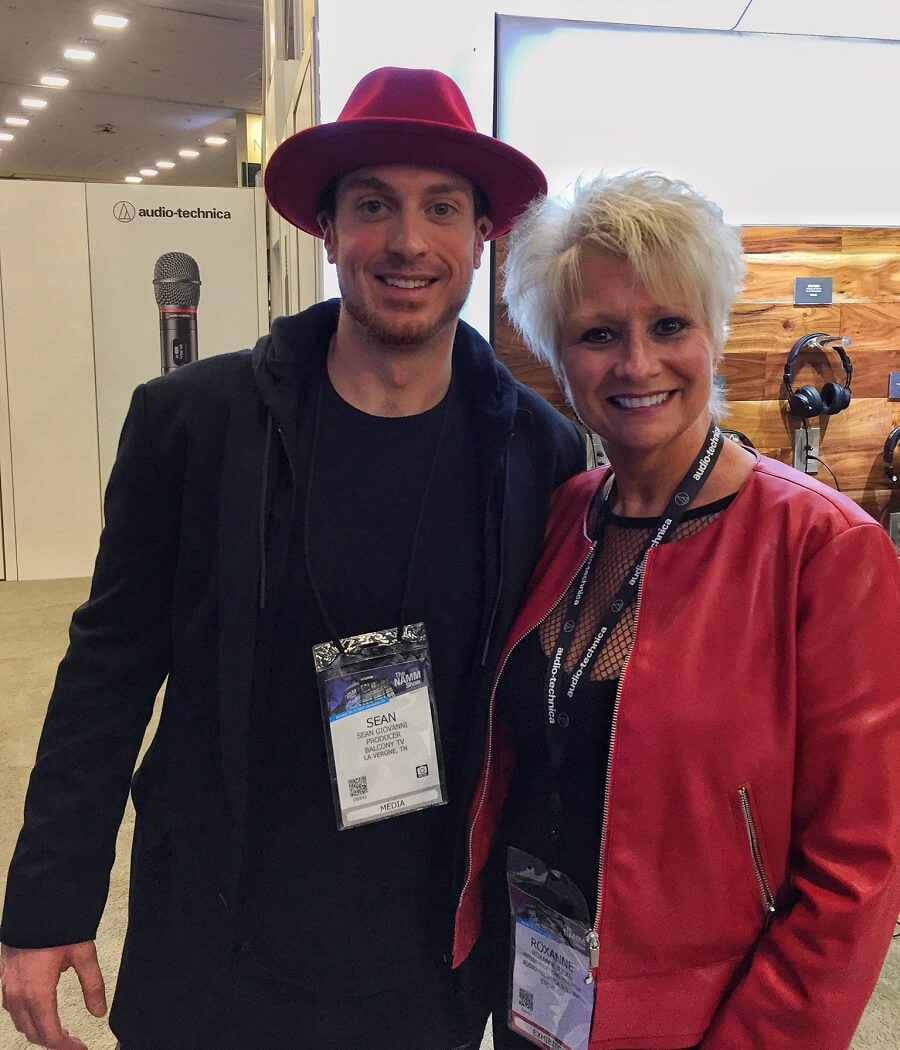
Recording Connection mentor Sean Giovanni aka “Gio” and Roxanne Ricks of Audio-Technica
If you’ve been reading our newsletter for a while, you know we’re constantly encouraging our students to hone their abilities to make smart decisions right alongside their artistry and craftsmanship. Having interviewed producer/engineer and Recording Connection mentor Sean Giovanni of The Record Shop (Alabama Shakes, John Legend, Meatloaf, Universal) in Nashville, a number of times before, we decided to pick his brain on a specific topic. “How can adopting an entrepreneurial mindset help our students achieve their goals?”
Turns out, we weren’t the only ones to consider Gio a good resource on the subject. In fact, the day after our face-to-face interview, he delivered a talk at NAMM entitled: “The Entreproducer: Building Success Through Passion.”
Our own resulting interview with the trailblazing producer and entrepreneur was nothing short of remarkable, so buckle up!
How can our students use an entrepreneurial mindset in order to grow their careers, their businesses, or both?
“Where I tell students to start is to define what their purpose is. That’s something that we hear about a lot. There’s a lot of self-help people and motivational speakers that talk about ‘determine your purpose.’ It can sound a little cliché, but it is so intricately important to figuring out your direction with your career. When you have your purpose, you know that you’re meant to do something and you’ve committed to doing it, then it’s so much easier to stay consistent with it. Whenever we have tough times, feel like things aren’t moving fast enough…see other people excelling at a quicker pace and we get burnout or upset by that…we’re able to refer back to our purpose. We’re able to remind ourselves, ‘There’s a reason why I took this path.’
I figured out my purpose was to be able to help artists create a piece of art that would outlast themselves. I found this quote early on in my career by the philosopher William James who says, ‘The best use of life is to use it for something that will outlast us.’ That had a big impact on me. When I was growing up there were all these timeless recordings that inspired me to be a recording engineer and producer. Be part of creating that, because it’s something that can last forever and can have such a big impact on so many different people. So, for me, that’s the thing that inspires me…
The next step after finding out what your purpose is, is to figure out a plan… Goal-setting is extremely important, but a lot of people start with the biggest goals. I did that, too. I had these major goals to achieve, and you’re so focused on the final destination that it’s hard to see the steps that you’re taking and how far you’ve progressed along the way…
So [then] I started…focusing on smaller goals…The first high-end microphone that I bought was a Neumann U87. I looked at what my expenses were to survive. What I needed for rent, food, bills, and how much money I was bringing in. Then, I set aside a certain amount of money every month to put towards that microphone, and eventually I saved up enough to buy it.
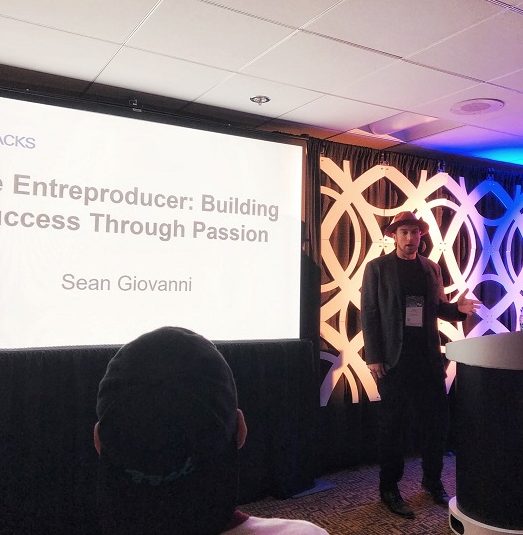
Sean Giovanni speaking at The NAMM Show 2019
And when I bought it, that microphone had so much value to me because all those sessions and all that work led up to being able to obtain that. And then I replicated that process and I started to expand it and set larger goals. Once I was able to start building up equipment, then I had this vision for building a production company that would house a recording studio and develop a community that would help artists achieve their vision, and that’s what The Record Shop became.
So in the process of doing that, I said, ‘Okay, well I have this small studio on Music Row which I’m working out of. It’s great for what I’m doing right now, but I can’t really track a full band in there, I can’t produce a major project. So I have to find other studios to do that.’ So my next goal [was], ‘Let’s get to a point where you can afford a lease on a larger property.’ So, I set that goal for myself to achieve within five years. In four years, I got to that point and was able to accomplish that…My next goal within five years was to be able to open up a larger studio with and multiple rooms [so] we could accomplish more. It took a bit longer. I had a five year plan to accomplish that. It felt like a good number to me, but the process took about six years to happen. But I had those steps along the way to help make it happen.”
In your opinion, what’s the biggest challenge facing most creatives today?
“The biggest challenge that I come across with producers and engineers that are just starting their career, and with artists, songwriters, [and] creatives in general, is that we oftentimes have a hard time balancing our creative aspirations with being a businessperson. In the modern music industry, most of us are going to end up being freelance entrepreneurs. So the word ‘business’ can sometimes be a dirty word to a creative. I like to use the word ‘entrepreneur’ because the idea of an entrepreneur is that they have their own creative direction, they can find their own path. They don’t answer to anyone except for themselves, which is incredible, but it also requires a significant amount of self-accountability in order to achieve at a high level. You don’t have someone that’s on your ass if you mess up. You don’t have someone to make sure that you’re showing up for work on time every day and that you’re maintaining your schedule and that you’re working as efficiently as you can. You’re the only person that can do that. So it takes a lot of responsibility and commitment to make that happen.”
So it sounds like being accountable is key. Do you regularly check in with yourself to see how you’re progressing at meeting your goals?
“I’m accountable to myself every day. So before I leave the studio and complete my workday, I go over the list of things that I was supposed to accomplish that day and make sure that they’re all done. If there’s anything that I missed, I make sure that I work on it. I go through all my emails, handle all of the administrative stuff that I need to get done, and make sure that’s accomplished. It feels good once I’ve looked at everything that’s been accomplished that day. And the last thing I do is look at my schedule for the next day, and I visualize my entire day, from when I wake up until I’m going to be going back over the review of my day for the next day. And step by step, I go through that process and I say, ‘Okay, I get up, go through my morning routine of exercise and mindfulness and reading, and then I get into the studio. What’s my first session? What’s my first meeting? What do I need to do to prepare for that? When am I taking a break for lunch to make sure that I’m keeping my body fueled? …My entire day, I have visualized in my mind. And I say, ‘Okay, cool. I’m ready to go.’ That way every morning when I show up, there’s no question. I don’t have to think about where do I start, what do I do? I already know because I played it out in my mind a day before. So I’m ready to go after it.”
Does having that discipline actually help free you up creatively?
“Yeah. I don’t have to worry about anything because I know it’s going to be taken care of. I’m already on top of it. So rather than saying, ‘Oh, I’ve got to remember to do this thing or that thing,’ I already know…So if I’m involved in the production of something, I am 100% completely focused on that and there’s no distraction.”
Learn more about Recording Connection and discover an immersive music production school, audio engineering, live sound, Ableton, beat making and more.
Q. Recording Connection mentor Sean Giovanni on the Nashville Scene, Industry Relationships & Producing Artists
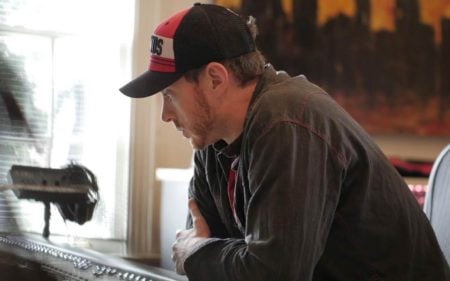
As owner and chief producer/engineer at The Record Shop in Nashville, TN, Sean Giovanni is a music industry professional who grew from humble beginnings to become an integral part of the Nashville music scene, with a diverse client list that includes names like Big & Rich, Tim McGraw, Brett Michaels and Lil Jon. As a Recording Connection mentor, he takes pride in helping our students find their own paths to success. In a recent conversation with RRFC, Sean shared a bit about his beginnings in the music business, his observations about the Nashville music scene, and some helpful advice on building relationships and working with artists. We’ve mined the best nuggets from that conversation for you below. Enjoy!
ON HOW HE DECIDED TO PURSUE A CAREER IN AUDIO ENGINEERING AND PRODUCING:
“I’ve just always been a huge fan of music…My dad was a huge fan of music, he always had music on when I was young and love taking me to concerts. Everybody from Alan Parsons to Snoop Dogg. Experiencing really made me want to do something with music. I started taking guitar lessons, playing around on piano, writing and learned basic music theory. And I think at some point…my mind was always thinking about like the arrangement, like all of the parts, and how they work together, and the dynamics between things… That was the part of music that became most inspiring to me.
“Around middle school I got into DJing…I bought a four-track tape recorder and started learning the ins and outs of engineering, just to record my own things and some songwriter friends. I started producing some pop tracks and hip hop tracks as well, and began to get an idea of how I was going to turn this passion that I had for music into a career. In high school I started getting really interested in the idea of being a producer and engineer and began to research how to get into the industry.”
ON SURVIVING IN NASHVILLE IN THE EARLY DAYS, AND MAKING CONNECTIONS:
“I ended up DJing at the club downtown. And so, doing that, I was able to pay my bills, just working on the weekends…And then the rest of the time I could spend focused on engineering. I started making more investments into recording equipment and stuff, and kind of building up my studio side of things…one day I was just looking through the paper and saw an ad for an audio engineer at a voiceover studio. I went over and interviewed and got the job. One of the advantages that I didn’t think of until it happened was being connected with all the vocal talent. They didn’t just do commercials and dialogue stuff—they did vocal demos, and they were background singers, and touring performers…So they would introduce me to different producers, different artists, other session players, other session singers, and that sort of thing. It also gave me access to a lot of really great demo vocalists that I could then hire for projects, and people that I may not have met as quickly or easily otherwise…It turned out to be something that led to a lot of really good connections and opportunities.”
ON PAYING DUES AND COMING UP THE LADDER AS A PRODUCER/ENGINEER:
“I started just going out on my own and meeting artists and songwriters that were also new to town that didn’t have connections yet with a studio or a producer or engineer. Initially, my thought was just to build a client base, but also just to get more experience as an engineer. So, I’d just go out to shows and find people that had similar creative interests, and just you know, work together. At first, I wasn’t paid to do anything, I just would collaborate with different writers, artists, and bands. And then eventually I was able to start turning that sort of thing into paid gigs. I set up a small overdub studio in the Music Row area of Nashville…I think from doing that, the process to get into producing happened a lot quicker because I was working with new artists that were young, and new artists that were new talent, didn’t have huge budgets. So by default, I started taking on the role of a producer because there wasn’t someone else to do that with the people I was working with. And eventually, some of those people that I worked with started getting publishing deals, and record deals, and I was able to come along for the ride and continue to be a part of those projects.
That’s the way that the music business works in general. You pay your dues and work your way up, and then eventually some of the acts that you’re working with start to break and their career starts to take off. And then, in turn, your career takes off because people know who you are now.”
HIS OBSERVATIONS ON THE NASHVILLE MUSIC SCENE:
“I think there’s definitely different sorts of groups in Nashville as far as the scene goes. There’s a really h2 songwriting community. Obviously, that’s a lot of what Nashville was built off…so there’s that side of the world, where there’s people, either independent writers or writers with publishing deals that spend their days with three sessions back-to-back writing…There’s the established production community, where we’re in the studio working on records, stuff that’s to be released, commercially …And then there’s like the new developing acts, and that side of the scene, young up and coming people, people that are new talent that are just kind of figuring things out, and they’re playing in small clubs on songwriting nights and regional tours. There’s a really diverse scene in Nashville…It’s definitely a super eclectic community.
I think one of the coolest things about Nashville is that if you go out in certain parts of town, an established, iconic major label act is just as likely to be sitting at the bar next to you as the kid that just moved to town and just has his guitar in his apartment and stuff, and is just kind of getting started with things…And if somebody’s out for some event or appearance somewhere—and they’re walking down Broadway, and there’s a band playing up the street, and they feel like singing…you know, you’ll see Keith Urban jump up onstage and sing with the band for a couple songs or something. That sort of thing happens all the time.”
THOUGHTS ON ONE OF HIS ONGOING PROJECTS, BALCONY TV, A SERIES OF ROOFTOP SHOWS:
“That’s a cool thing that we do. It’s a fun way for us to give back to the music community and to showcase the diversity of the musicians that we have in Nashville. With the way we try and book the shows, we’ll get an eclectic group of artists that normally would never play on the same bill together, but on Balcony TV, they can all come and meet and hang and share their different styles of music… It’s filmed once a month. We have a mobile recording rig that we bring out…all the converters and everything and preamps are all self-contained in the rack. Then we plug the laptop into it and got one power cable and everything just runs off of that.”
ADVICE ON BEING A “FORWARD THINKER” AND DEVELOPING AUTHENTIC INDUSTRY RELATIONSHIPS:
“You definitely have to keep an open mind and like a forward-thinking sort of mind. I’m kind of always thinking about opportunities, and something that I learned later on in my career is that the more value that you can add to the situation… For the voice talent that I was working with, if there’s something significant that you can offer to them, then they’re going to remember you more likely than just the random engineer that’s just pressing record… And if I could get ’em a gig you know, recording a demo vocal for me, that meant that I could get them over to my studio and I could let them see the real side of what I wanted to do and get them excited about that. And then, in turn, they would have, ‘Oh, well I’ve got this producer that I’ve been working with, that might need an assistant, and you know, it’d be good for you to meet them.’ Or, ‘I have a project that I’m working on that I need to do some overdubs for’ would you record them with me?’ …So, a lot of those, sort of, just thinking outside of the box and thinking about how you can maintain and develop a relationship further… I think that in the entertainment industry, in general, the more authentic that you are with people, the more you’re going to be respected.”
ADVICE ON THE GIVE-AND-TAKE ASPECT OF PRODUCING AN ARTIST:
So, when you’re a producer, you have to be like a psychologist, too, and understand how to deal with the way that somebody’s thinking and how they’re going to react to something that’s different than what they have. There’s some artists that are really open to things, and really trusting in that sort of way. And if you’ve already spent the time building up that respect between one another, then you’re much more likely to get a positive response from the artist if you have an idea that may be different than what their initial idea is, at least for them to be open to experimenting with it. But if the whole time through the process you’ve been saying, ‘No, we need to do this,’ every time they’re saying they want to do something the other way, then you’re just going to get more push back, you know, every time. So, I think the better trust that you’ve built with the artist, the easier it’s going to be to deal with that sort of situation…At the end of the day, they’re the ones that have to go out and perform the song every night. It’s going to be on their record, and both of your names are going to be on it, but you know, it’s representative of the artist. And as long as it’s not something that’s going to destroy my reputation or something, then you know, at that point, I think you just defer to what their decision is…I think the biggest thing to take away from it is that [you] don’t demand that something be a [certain] way, don’t say that you’re right and they’re wrong, but have a democratic discussion considering all of the options and make an educated decision based off of that. And the more open that you can be to that sort of experimentation of creativity, the more likely it is that they’re going to end up realizing that you may have had it right in the first place.”
Q. Advice for up-and-coming Producers and Engineers from Recording Connection mentor Sean Giovanni
Over the years, Sean Giovanni, owner and chief producer/engineer of The Record Shop in Nashville, has accumulated a pretty impressive client list that includes artists as diverse as John Legend, Tim McGraw, DJ Sinister, Brett Michaels, Randy Houser and country music duo Big & Rich. Sean Giovanni also has the distinction of being one of Recording Connection’s most effective mentors. During a recent conversation with us, he drew from his own musical and life experiences to share some solid advice for people looking to break into the recording industry.
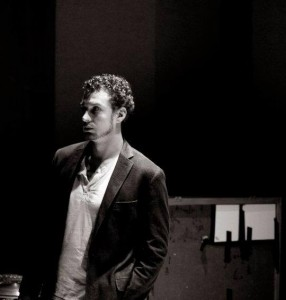 Giovanni started learning how to play guitar and piano at an early age. However, he soon realized he wanted more from music. Simply playing piano or guitar, left him, he says, “frustrated because I wasn’t really excelling … and in my mind I had this grand vision for the way songs were arranged. So later on in life, I realized that at my core, I was really meant to be a producer and engineer, to direct and create all the sounds as opposed to just focusing on just one of them the way a musician does.”
Giovanni started learning how to play guitar and piano at an early age. However, he soon realized he wanted more from music. Simply playing piano or guitar, left him, he says, “frustrated because I wasn’t really excelling … and in my mind I had this grand vision for the way songs were arranged. So later on in life, I realized that at my core, I was really meant to be a producer and engineer, to direct and create all the sounds as opposed to just focusing on just one of them the way a musician does.”
Like countless other music producers and engineers, Giovanni had to forge his own way to make it in the music industry. This renegade way of doing things is something he strongly urges up-and-comers to adopt. “Once you have the education, rather than trying to start out right away by getting a job in a studio, if you can’t find a job in the studio, find a band you can record and bring them into the studio,” he says.
“When I moved to Nashville, I could not get a job [in a studio] anywhere but I landed a job DJing in a club downtown, and so that’s how I made a living. Then, I’d find artists and bands, and I ended up connecting with a small studio who let me use their facility after hours, and gave me free reign over the place. So I made work for myself. I found artists I could work with and brought them into the studio. When [the studio owner] saw all the business I could bring in, he started bringing me in on projects … it just kind of grew from there … I found that getting started out, if I could add value to the organization, they’re much more interested in sending me work or giving me an opportunity. If I can make them money, they’re going to want to hire me to do things.”
Giovanni also says diversity is key when it comes to getting work and getting working in the music industry. He advises new music producers and audio engineers to be as diverse as their skills and interests will take them. Again, referring back to his own experience in the industry, he says, “It’s good to have a basic knowledge of every style of music … It’s helped me in the evolution of country music, for example. My background in programming and pop tracks and hip-hop has been so valuable for me to be able to jump on this new wave of country music that’s coming out that is also very heavily programmed and has a lot of pop influences. [T]here’s not a lot of the country guys that could jump right in and do that, so I find myself getting a lot of work on that side of things because I can do both of them. I can do a straight-up country record, I can do the pop thing and I can combine them together. It’s helped me in other genres as well.”
Getting the right connections has also played a huge role in Sean Giovanni’s success as a producer/engineer. New projects cam his way after doing good work on the previous ones and often for not a lot of money. In fact, getting to work for major Nashville labels was an opportunity that came along, not when he was necessarily looking for it, but when it decided to help out a friend on a certain project. Even if the pay is low, the producer/engineer says, consider projects as the opportunities that they are rather than getting too hung up on the money part of the equation right away.
“Be open to helping people out,” Giovanni says, “recognizing the value of doing something. Even if you’re getting paid less than you think you’re worth, the value that can come from that later on is going to be exponentially more than the little bit of money that you make at first. That was my thought process starting out, and now I don’t have to worry about that at all, which is an awesome thing.”
Q. Recording Connection mentor Sean Giovanni is busy in Nashville!
![Giovanni Promo Pic[1]](/wp-content/uploads/2024/07/Giovanni-Promo-Pic1.jpg) Recording Connection mentor and studio engineer, Sean Giovanni recently caught us up on all that’s going on at The Record Shop in Nashville, Tennessee. Giovanni says:
Recording Connection mentor and studio engineer, Sean Giovanni recently caught us up on all that’s going on at The Record Shop in Nashville, Tennessee. Giovanni says:
“We’ve had a lot going on in the studio! We started out Tuesday mixing for the weekly show ‘The Country Fried Mix with DJ Sinister’ that is broadcast on over 35 channels across the country and will be played 24/7 on Sirius XM during CMA Fest. Wednesday we had three different full band tracking sessions…Today we are working with [country duo] unBRAKEable on tuning their songs for their new album. Tomorrow we’re cutting vocals on new songs for The Farm, [a country act] that just got signed to Warner Brothers.”
In addition to all of this, Sean Giovanni and the team at The Record Shop still find time to regularly produce their popular video show called Balcony TV featuring different major artists playing songs on balconies all around the world. Pretty sweet, huh?
As a mentor, Sean Giovanni looks forward to involving his apprentices in everything that’s going on at The Record Shop. “I like the idea of this program and wish there was something like this when I was getting started,” he says.
Notes:
Sean has over 18 years of music industry experience. Longtime producer/engineer of Balcony TV—indie online music show (139,909 subscribers on YT )
Learn in Sean Giovanni's Studio in La Vergne, Tennessee.
-
Sean Giovanni
Recording Connection Audio Institute2480 Moore Way La Vergne, TN 37086, United States(615) 471-7988